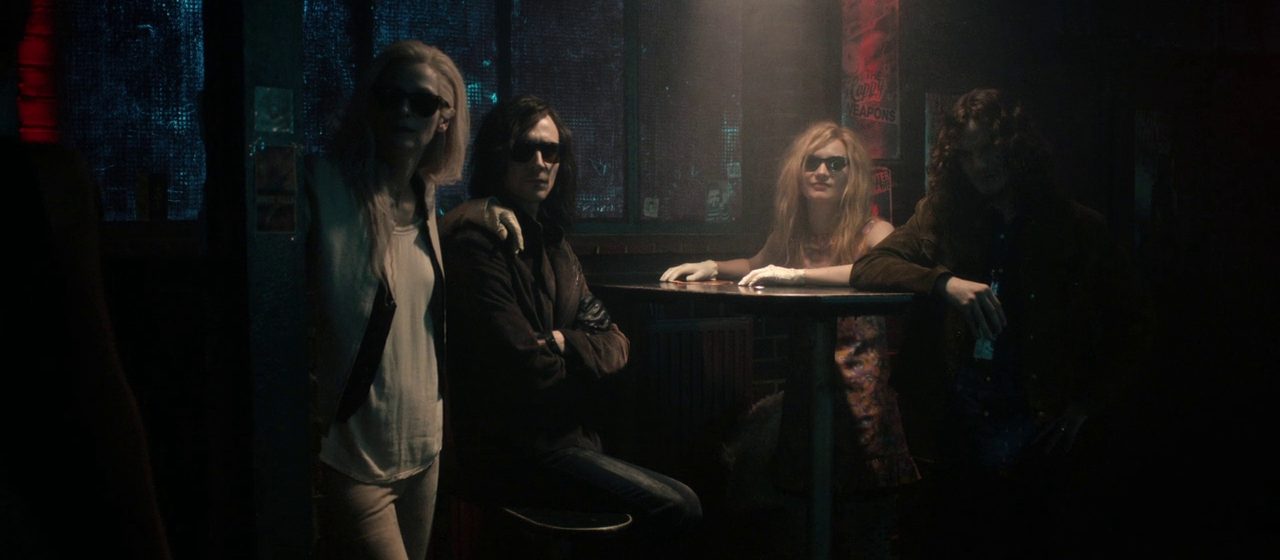
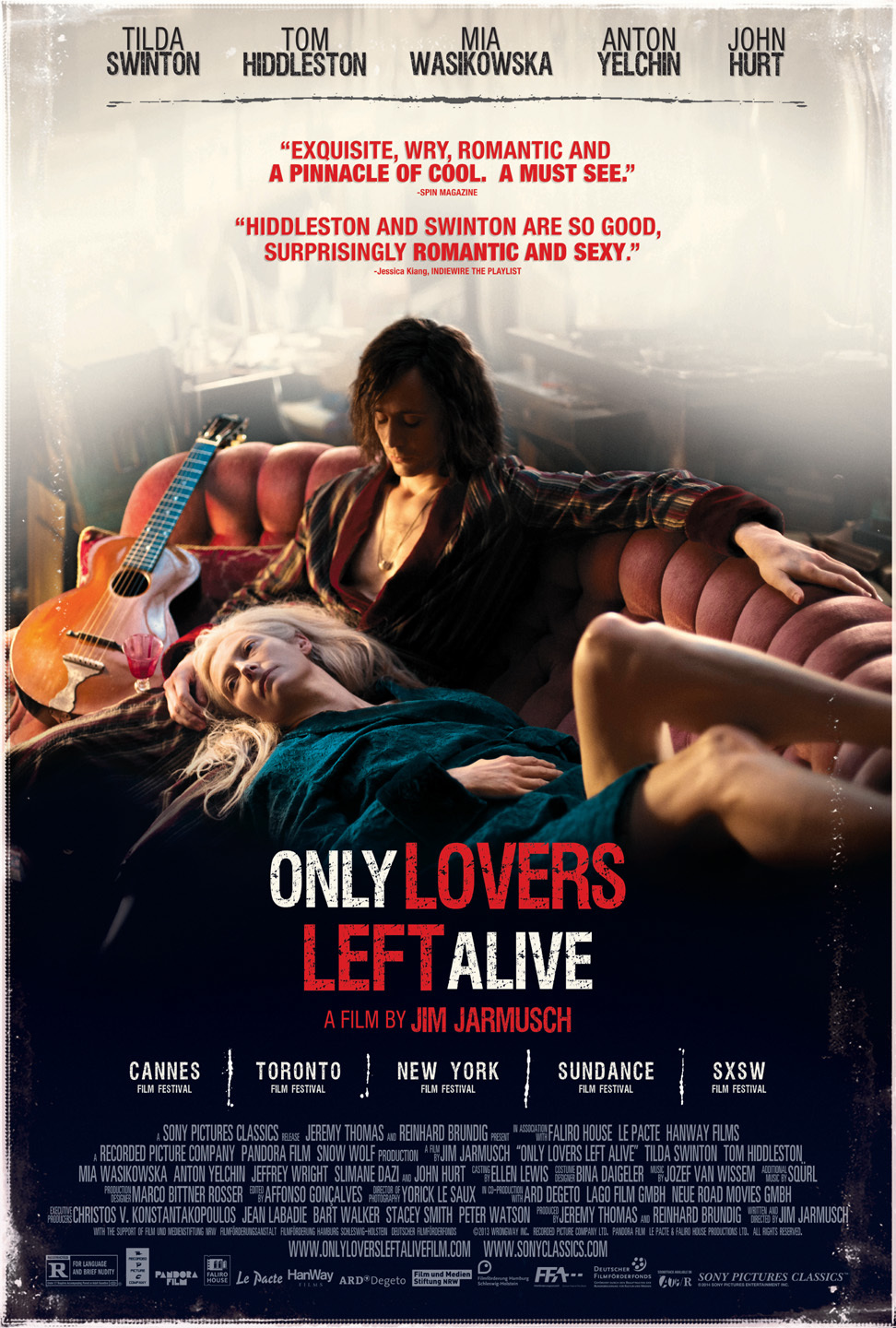
“What are we gonna do with him? I mean it’s not like in the old days when we could just chuck them in the Thames alongside all the other tuberculosis floaters.”
Only Lovers Left Alive is the work of a true artist, a wildly independent original who is grappling with the state of the world and his place in it as he enters the twilight of his career. In the form of two ageless vampires—though they’re never explicitly referred to as such—Jim Jarmusch paints a sorrowful self-portrait of a man with an insatiable lust for life, but who has grown world-weary and cynical as the years have gone by; a man who has watched a once-vibrant culture steadily decay before his very eyes with such rapidity that the changes can be discerned as they occur.
The typical vampire movie suggests that those stricken with immortality—not to mention bloodlust and sun aversion, etc.—would be cursed by their longevity. They would be trapped in a cycle of grieving, their mortal loved ones withering to dust around them as they while away the eons searching for purpose and closure. Only Lovers Left Alive posits that an immortal existence wouldn’t be all that bad. At least not at first. For someone like Jarmusch it would be like an eternal beatnik excursion, a chance for the dilettante to jubilantly dabble to his heart’s content, to get his hands dirty with every passing interest. To wit, the vampires in Jarmusch’s film treat their reliance on hemoglobin as a mere annoyance; their true appetite is for the arts—for transcendent music, stirring poems, and breathtaking paintings.
Indeed, this lifestyle of casual artistic pursuits might sound like a dream for the serial flâneur. But such a life is not self-contained. On the contrary, it is entirely dependent on the cultural warp and woof remaining vibrant and fertile. In Jarmusch’s lifetime, the culture that used to invigorate the artist has lost its alluring edge; has become a morass of bland, tawdry, lowest-common-denominator junk. And so he presents his ageless shadow dwellers as apathetic and jaded, mournfully sifting through the detritus of bygone eras, eulogizing their human idols, and yearning for a fresh spark to liven up the perpetual ennui.
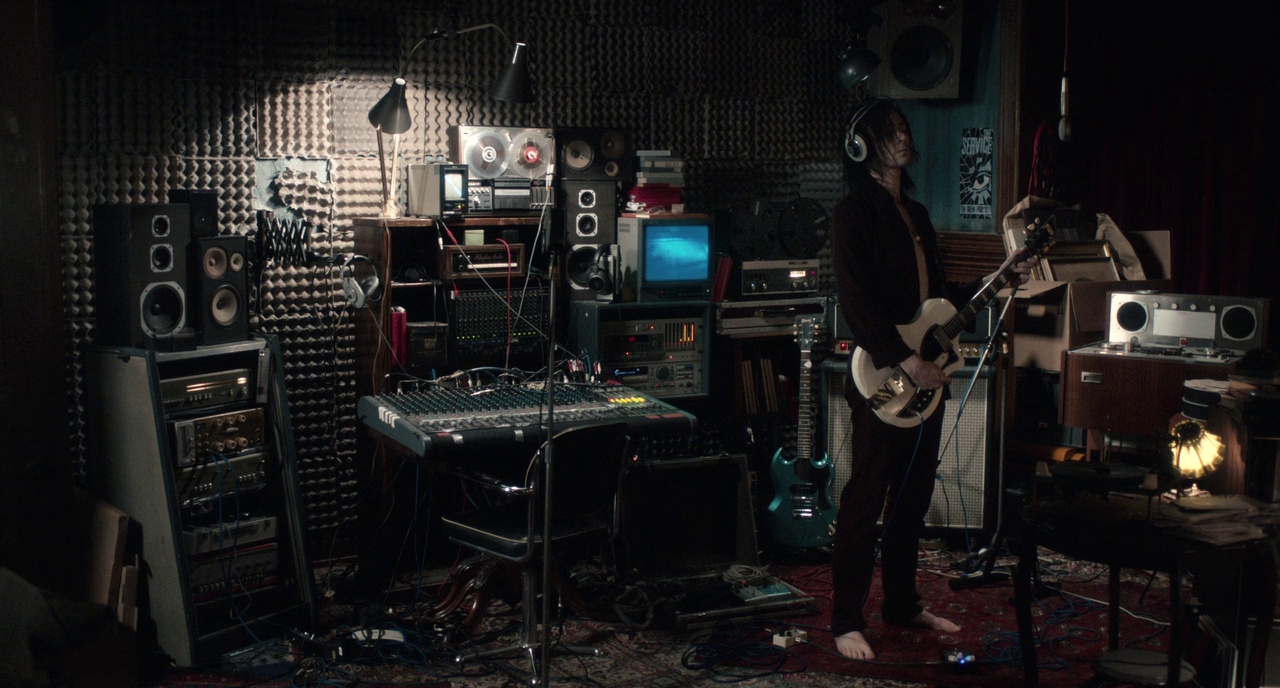
In Only Lovers Left Alive, too many years have passed since the halcyon days when Adam (Tom Hiddleston) and Eve (Tilda Swinton) spent their time interacting with the likes of Buster Keaton, Joe Strummer, Franz Kafka, Edgar Allan Poe, and Nicholas Ray, occasionally passing their own work to a human artist to get it out into the world without the unwanted attention coming to bear on themselves. The standards have woefully fallen in the ensuing years—though there are a few moderns, such as David Foster Wallace or Jack White, whose childhood home makes a cameo, who receive the Jarmusch stamp of approval—and it’s all our ancient cynics can do to bemoan the fact. Thus Jarmusch’s world is divided into two classes: the artistically refined vampires and the insipid humans, or as the vampires call them, zombies. It is the pernicious cultural influence of these zombies that Adam has lost the desire to compete against.
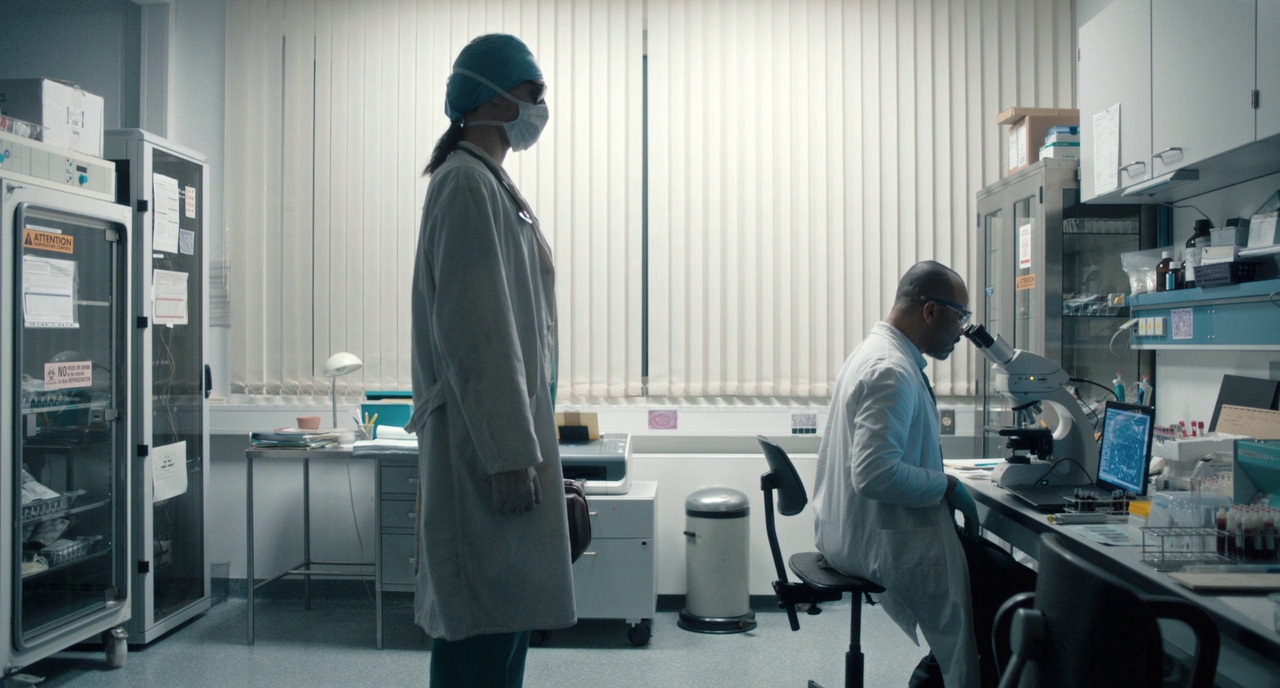
A reclusive cult musician, Adam lives in a grungy Detroit apartment packed with endless piles of valuable clutter—ancient recording equipment, vintage guitars, leather-bound works of literature, a shrine to the heroes of arts and science. His days are spent writing slow-chugging rock riffs that underscore his melancholia (performed by Jarmusch’s own band SQÜRL) and rigging up contraptions to power his home and his car using techniques he learned from Nikola Tesla. He has regular contact with two zombies: an enterprising doctor (Jeffrey Wright) at a local blood bank who ensures he has a steady supply of clean O negative in exchange for wads of cash; and a scuzzy rock fanatic (Anton Yelchin) who clandestinely procures him all manner of outdated instruments and other curios, including a brass-plated wooden bullet that he occasionally contemplates using to kill himself.
Sensing her husband’s suicidal gloom during a video call (which Adam routes through an early color television set), Eve decides to forsake her Tangiers abode and its stacks of books, bids farewell to her mentor Christopher Marlowe (John Hurt), and heads to Detroit, where her husband laments the dying culture by pointing out the masses of tangled wires that channel evil and the once-beautiful Michigan Theater that has been converted into a parking garage.
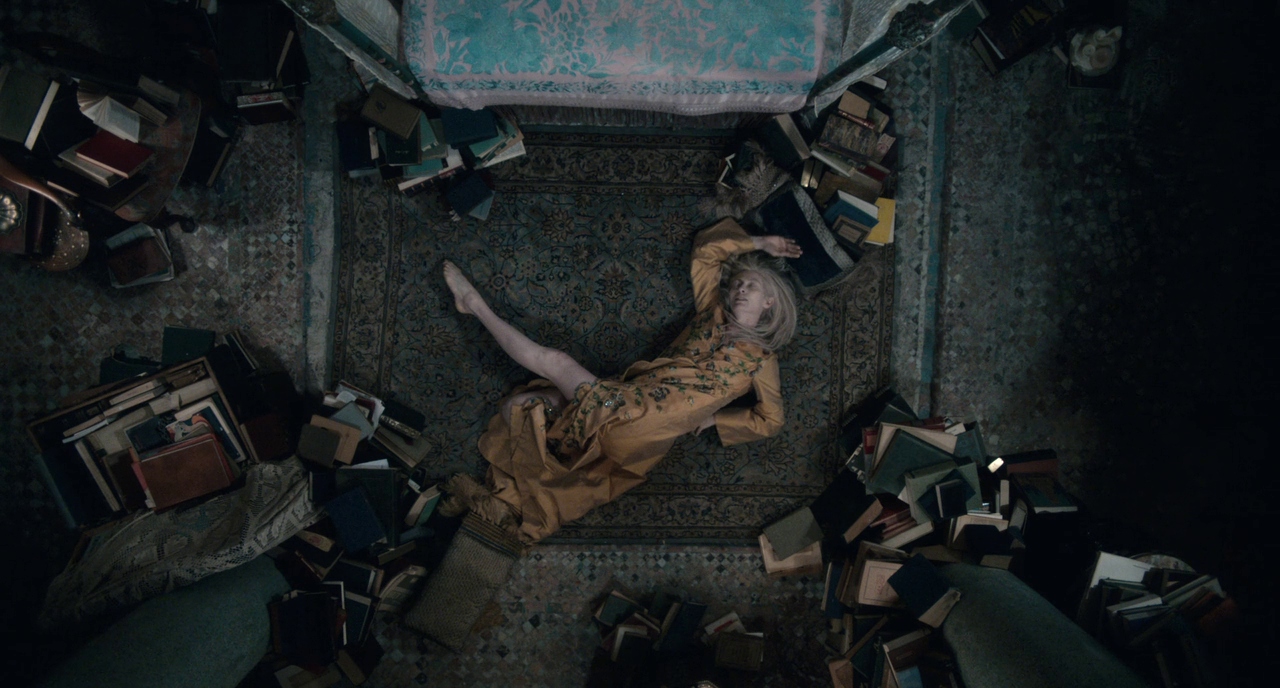
It’s pleasurable in and of itself to spend time with Jarmusch’s unique characters. The dry humor, the trance-like psychedelic drone of the soundtrack, the hellish nighttime depiction of a crumbling Detroit, and the committed performances sustain the early portion of the film so well that it’s easy to come to grips with the film’s lackadaisical pace. In fact, it is so unhurried with its vinyl listening zone-outs, banter-filled chess matches, and nocturnal drives that it’s almost a surprise when Eve’s brazen sister Ava (Mia Wasikowska) arrives and threatens to pull the film fully into its genre. Ava is a bit of a loose cannon who will drink the tainted blood of whatever human catches her fancy and seems incapable of keeping a low profile. She represents everything that Adam hates about the modern world. But Adam is so consumed by his grief, which renders him standoffish and sarcastic, that Ava’s shenanigans only gain a small foothold before she’s thrown out of his house.
How can you have lived for so long and still not get it? This self obsession is a waste of living, It could be spent surviving things, appreciating nature, nurturing kindness and friendship, and dancing. You have been pretty lucky in love though, if I may say so.
Jarmusch and his vampiric literati are in an odd situation where they’ve accumulated a vast knowledge of creative pursuits and exhibit a sophisticated, considered appreciation for the arts, and yet find the world unreceptive and incomprehensible. But there is an undying flicker of love between Adam and Eve that provides Only Lovers Left Alive—and, depending how far we want to read it as autobiographical, Jarmusch too—with a bit of hope. As long as love exists, as long as one can laze away an afternoon enjoying great music and talking over your favorite books with a lover or friend, the ebb and flow of culture and the enduring flaws of humanity need not always result in sorrow.